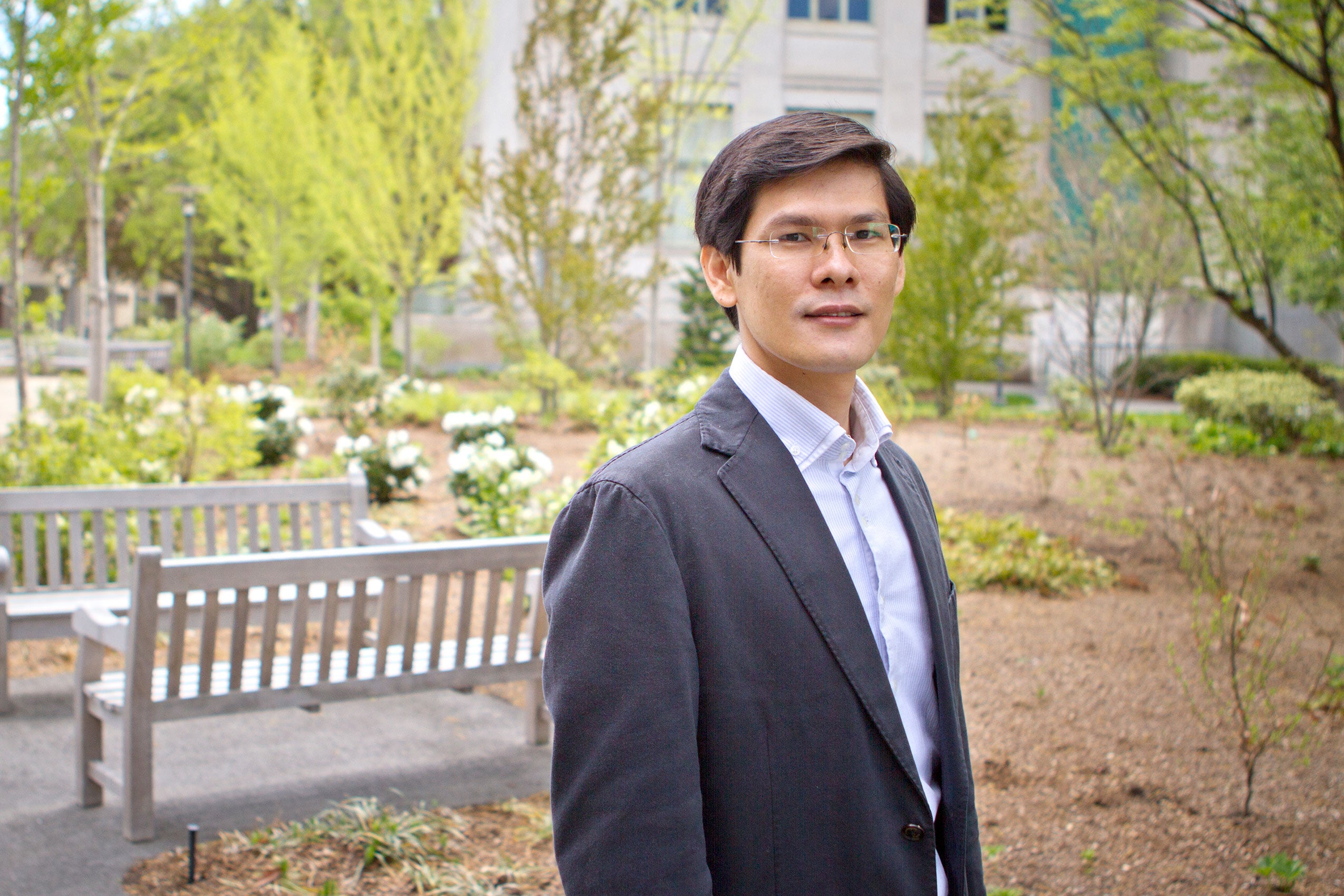As he prepares to finish his LL.M. year at Harvard Law, Lor Sok recalls all the benefits the experience has provided him. He praises his classes, professors and fellow students. He’s enjoyed trips to explore the United States from the West Coast to New York and even smiles at the memory of going to the opera in Boston. But the real test of the experience, he says, is what it will mean for Cambodia, his homeland.
“Your performance as a member of the Harvard family will be measured not so much by your personal progress but by the extent of your contribution and impact you can make in the progress of the society,” he says.
For nearly the last 10 years, Sok has worked to improve his country through the Arbitration Council Foundation, an organization for which he first served as chief legal officer and now as executive director. The country’s first arbitral institution, launched in 2003, the Arbitration Council Foundation resolves labor disputes, typically in the garment industry, including issues involving wages, level of benefits, rights and responsibility of trade unions, and the rights of women in the workplace. He touts the neutrality of its decision makers and arbitrators and the fact that it is free of corruption, an important sign of progress and a matter of pride in a developing country, he says.
Of course, more than many countries, Cambodia has faced challenges establishing its laws and institutions. Sok speaks of a stigma that still affects his country, how for many it still conjures thoughts of the genocidal Khmer Rouge regime, which was in power just before he was born in 1980. In the aftermath, few legal minds remained since the regime targeted the intellectual class. Contract law was only a few pages, like a child’s paper, as Sok puts it. The country, which faced civil conflict after the Khmer Rouge fell, begin its transformation when a 1991 peace agreement was signed and now has a functioning level of laws to govern society, he says.
“My challenge here is to let people know especially with recent developments that my country is no longer attached to genocide,” says Sok. “It’s actually a country that’s progressing forward.”
He was inspired to become a lawyer because he saw the law as a way to make changes in society, especially in a low-income country that has recently emerged from a long period of conflict.
“You have an opportunity to make a big contribution to push the legal frontier in my country, Sok says. “I see myself as having a role to play in advancing justice and development of the country.”
While he was experienced in dispute resolution, his studies at HLS have broadened his knowledge of subjects like law and economics, business law, and constitutional law. Cambodia is a civil law country and learning about a common law system also has expanded his perspective, he says. He describes the law in Cambodia as static, and “coming here, you see that the law goes through constant changes that reflect the actual needs and level of development of the country. This is something that I find quite amazing and so important for me to take back to my country.”
Sok isn’t aware of anyone else from Cambodia who has gone through the LL.M. program and neither is the HLS alumni office. When he gets back home, he is going to try to inspire others to follow, for the good of his country.
